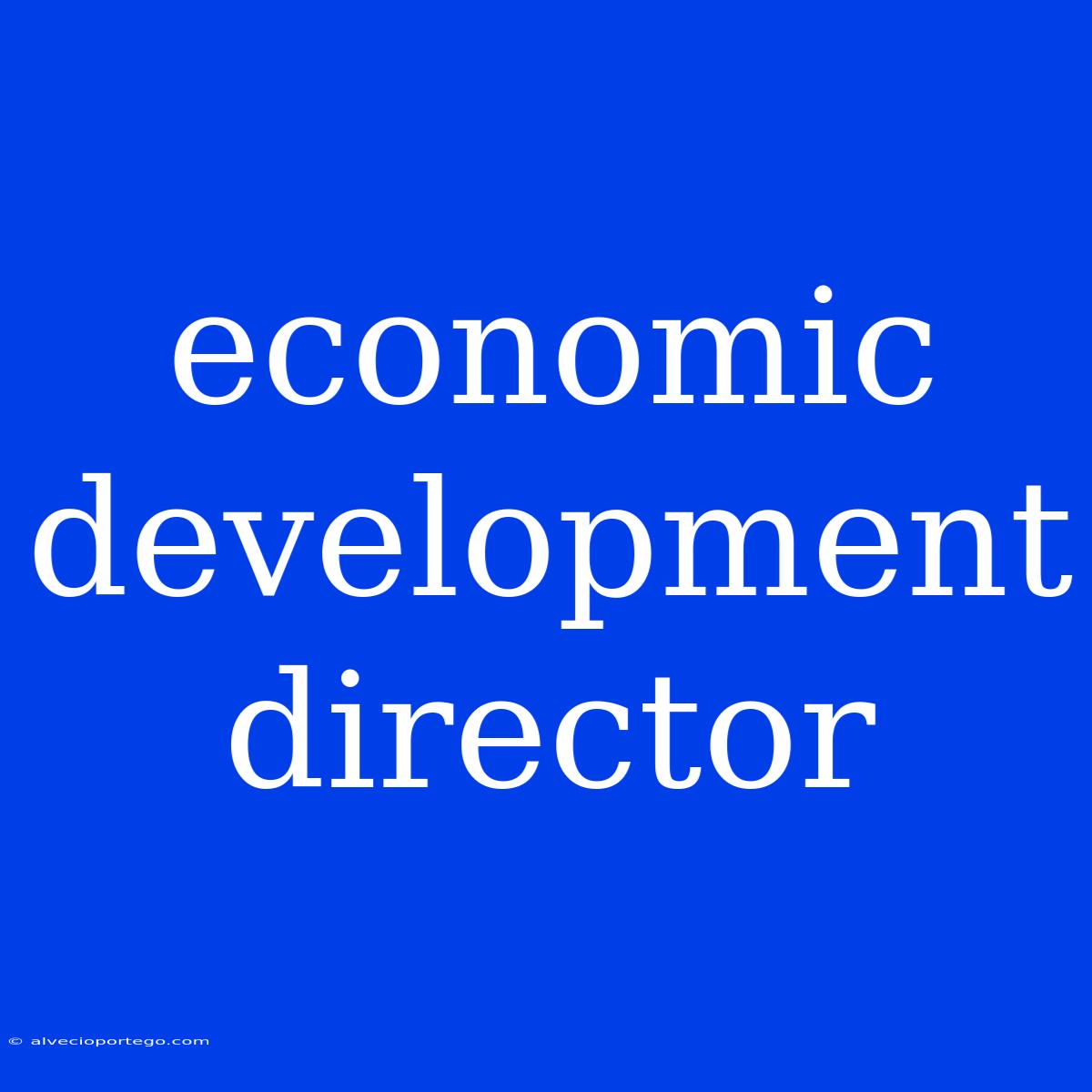Economic Development Director: A Vital Role in Shaping a Thriving Community
An Economic Development Director plays a crucial role in the well-being and prosperity of a city, county, or region. They are the driving force behind strategies aimed at attracting new businesses, fostering existing ones, and creating a dynamic, thriving economy. Their responsibilities are multifaceted, encompassing various aspects of economic growth, from strategic planning to community engagement.
Responsibilities of an Economic Development Director
1. Strategic Planning & Vision:
- Developing comprehensive economic development plans: This involves identifying key industries, setting goals for growth, and outlining strategies to achieve those goals.
- Conducting market research and analysis: Understanding local strengths and weaknesses, regional trends, and potential opportunities is vital for informed decision-making.
- Developing strategies for attracting investment: This can involve marketing the region to potential investors, providing incentives, and streamlining the permitting process.
2. Business Attraction & Retention:
- Marketing the region to businesses: This includes showcasing available land, workforce, and infrastructure to attract new companies.
- Providing assistance to businesses: This can involve connecting them with resources, offering training programs, and advocating for their needs.
- Developing strategies to retain existing businesses: This involves understanding their challenges, providing support, and fostering a positive business environment.
3. Community Development:
- Collaborating with local government officials: Working closely with city councils, county commissioners, and other decision-makers to ensure alignment between economic development initiatives and overall community goals.
- Engaging with community stakeholders: This includes working with chambers of commerce, business associations, educational institutions, and residents to build consensus and support for economic development efforts.
- Promoting workforce development: This may involve working with educational institutions to develop training programs, connecting job seekers with employers, and supporting initiatives to improve skills and education levels.
4. Project Management & Implementation:
- Managing economic development projects: This includes overseeing the implementation of initiatives such as business park development, infrastructure improvements, and public-private partnerships.
- Monitoring progress and evaluating outcomes: Regularly assessing the effectiveness of economic development programs and adjusting strategies based on results.
Skills and Qualifications for Economic Development Directors
- Strong analytical and strategic thinking skills: The ability to analyze data, identify trends, and develop comprehensive economic plans is essential.
- Proven experience in business development or economic development: Prior experience in attracting businesses, fostering investment, and promoting economic growth is crucial.
- Excellent communication and interpersonal skills: Effective communication is essential for working with businesses, government officials, and community stakeholders.
- Project management and organizational skills: The ability to manage complex projects, prioritize tasks, and meet deadlines is vital.
- Knowledge of local government, economic trends, and business practices: Familiarity with relevant laws, regulations, and industry practices is crucial for success.
Conclusion
Economic Development Directors are critical players in shaping the economic future of communities. They play a vital role in creating jobs, attracting investment, and fostering a thriving business environment. By leveraging their skills and experience, they contribute significantly to the well-being and prosperity of the communities they serve.

